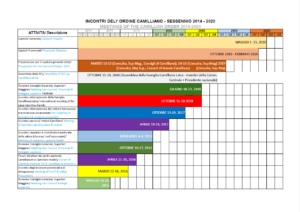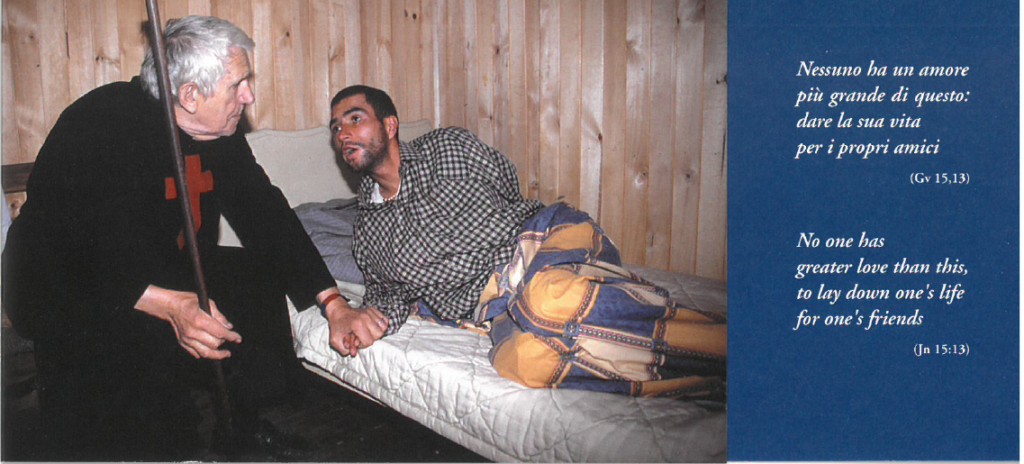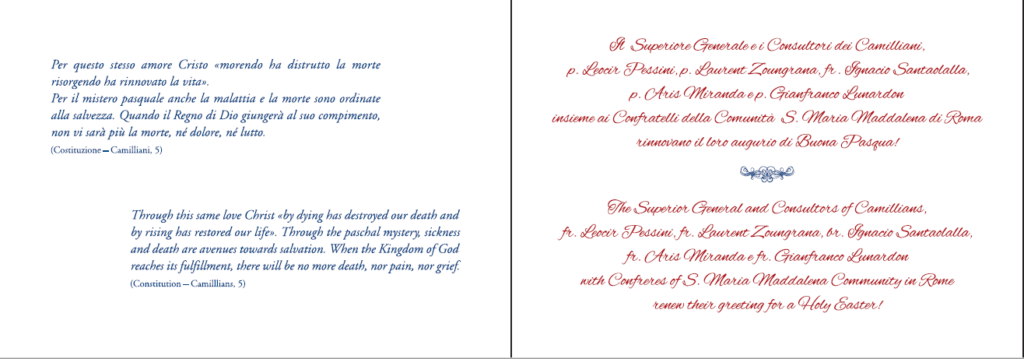NEWSLETTER 45 March 2018
In copertina: “Non temere piccolo gregge …” Mosaico di Elena Mazzari. Realizzato originariamente per la comunità di ‘San Giuliano’ a Verona ed ora custodito presso la casa di cura ‘San Camillo’ di Milano
Paul VI Audience Hall – Saturday, 3 March 2018
 The role of nurses in assisting the sick is truly irreplaceable. Unlike any other, the nurse has a direct and continuous relationship with patients, taking care of them on a daily basis, listening to their needs and coming into contact with their bodies, which the nurse attends. It is a particular approach to healthcare which you accomplish with your actions, wholly taking upon yourselves the burden of people’s needs, with that typical concern that patients recognize in you, and which represents a fundamental part in the treatment and healing process.
The role of nurses in assisting the sick is truly irreplaceable. Unlike any other, the nurse has a direct and continuous relationship with patients, taking care of them on a daily basis, listening to their needs and coming into contact with their bodies, which the nurse attends. It is a particular approach to healthcare which you accomplish with your actions, wholly taking upon yourselves the burden of people’s needs, with that typical concern that patients recognize in you, and which represents a fundamental part in the treatment and healing process.
The International Code of Nursing Ethics, to which the Italian code also aspires, identifies four fundamental responsibilities of your profession: “to promote health, to prevent illness, to restore health and to alleviate suffering. The need for nursing is universal” (Preamble). It entails complex and numerous functions, which touch upon every sphere of care, and which you carry out in cooperation with other professionals of the sector. The curative and preventative, rehabilitative and palliative character of your work demands from you a high level of professionalism, which requires specialization and continuing education, due also to the constant evolution of technologies and treatments.
This professionalism, however, manifests itself not only in the technical sphere, but also and perhaps even more so in the sphere of human relationships. Being in contact with physicians and family members, in addition to the sick, you become, in hospitals, in healthcare facilities and in homes, the crossroads of a thousand relationships, which require attention, competence and compassion. And it is precisely in this synthesis of technical abilities and human sensitivity that the value of your work is fully revealed.
Taking care of women and men, of children and elderly, in every phase of their life, from birth to death, you are tasked with continuous listening, aimed at understanding what the needs of that patient are, in the phase that he or she is experiencing. Before the uniqueness of each situation, indeed, it is never enough to follow a protocol, but a constant — and tiresome! — effort of discernment and attention to the individual person is required. All this makes your profession a veritable mission, and makes you “experts in humanity”, called to carry out an irreplaceable undertaking of humanization in a distracted society which too often leaves the weakest people at the margins, taking interest only in those who “count”, or responding to criteria of efficiency or gain.
Being in contact with patients each day, the sensitivity that you acquire makes of you promoters of life and of people’s dignity. May you be able to recognize the proper limits of technology, which can never become an absolute and relegate human dignity to second place. May you also be attentive to the desire, sometimes unexpressed, for spirituality and religious assistance, which for many patients represents an essential element of life’s meaning and serenity, even more compelling in fragility caused by illness.
For the Church, the sick are people in whom, in a special way, Jesus is present; he identifies himself in them when he says “I was sick and you visited me” (Mt 25:36). Throughout his ministry, Jesus was close to the sick; he approached them with loving kindness and healed so many of them. In meeting the leper who asks Jesus that he be healed, He reaches out his hand and touches him (cf. Mt 8:2-3). The importance of this simple gesture must not escape us: Mosaic law prohibited touching lepers, and forbade them to approach populated areas. However, Jesus goes to the heart of the law, which finds fulfilment in love of neighbour, and in touching the leper He reduces the distance from him, so that he may no longer be separated from the community of men and perceive, through a simple gesture, the closeness of God himself. Thus, the healing that Jesus gives him is not only physical, but goes to the heart, because the leper has not only been healed but also felt loved. Do not forget the “medicine of caresses”: it is so important! A caress, a smile, is full of meaning for the sick person. It is a simple gesture, but it lifts one up; a person feels supported, feels healing is near, feels as a person, not a number. Do not forget it.



Years ago, a religious confided to me that the most touching phrase ever addressed to him in his life was that of a sick man whom he had assisted in the terminal phase of his illness. “I thank you, Father” — he said — “because you have always spoken to me about God, even without ever naming him”: this is what tenderness does. This is the greatness of the love that we give to others, which is carried hidden within, even if we do not think about it, the love of God himself.
Never tire of being close to people with this human and fraternal manner, always finding the motivation and the impulse to carry out your task. Be careful, too, however, not to expend yourselves until almost consumed, as happens if one becomes involved in patient relationships to the point of becoming absorbed, living in the first person all that happens to them. What you perform is an arduous work, beyond exposure to risks, and excessive involvement, along with the difficulty of the tasks and shifts, could make you lose the freshness and peace that are necessary to you. Be careful!
Another factor that makes the performance of your profession onerous and sometimes unbearable is the shortage of staff, which cannot help to improve the services offered, and which a wise administration cannot envisage in any way as a source of savings.
Mindful of the highly demanding task that you perform, I welcome the occasion to exhort the patients themselves to never take for granted what they receive from you. You too, sick people, be attentive to the humanity of the nurses who assist you. Ask without insisting; do not just expect a smile, but also offer it to those who devote themselves to you. In this regard, an elderly woman told me that, when she goes to the hospital for the treatments she needs, she is so grateful to the doctors and nurses for the work they do that she tries to dress up and look nice to give something to them in turn. Thus, no one should take for granted what the nurses do for them, but always nourish the sense of respect and gratitude owed to you. And with your permission, I would like to pay tribute to a nurse who saved my life. She was a nursing nun: an Italian sister, a Dominican, who was sent to Greece as a teacher, highly educated. But then, again as a nurse, she arrived in Argentina. And when I, at 20 years of age, was on the verge of death, it was she who told the doctors, even arguing with them: “No, this is not good; more must be done”. And thanks to those things, I survived. I thank her so much! I thank her. And I would like to name her here, in front of you: Sr Cornelia Caraglio. A good woman, brave too, to the point of arguing with the doctors. Humble, but certain of what she was doing. And so many lives, so many lives are saved thanks to you! Because you are there all day, and you see what is happening to the sick person. Thank you for all of this!
THE CAMILLIAN DELEGATION IN TAIWAN
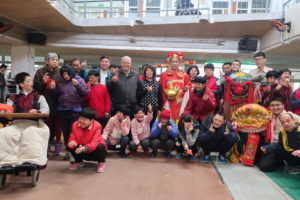


In our St. Mary’s Hospital, as well, this event of the Chinese New Year – a holiday time for all those people who work with us – was celebrated with the evocative choreography of the dance of dragons and lions which are the symbols of prosperity, and with the giving of the traditional ‘red envelope’ – with a gift – to our employees. This red envelope symbolises joy.
The Superior General, in response to a request made by the Provincial Superior of the Philippines, has canonically erected the new community of the Nan-Ao Township (Yilan County, Taiwan).
DOWNLOAD HERE the report of Fr. Giuseppe Didoné’s trip to China.
THE PROVINCE OF NORTH ITALY – Camillian pastoral care for young people and for vocations
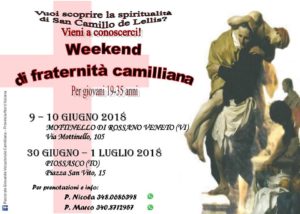


CREATIVE FIDELITY TO THE CAMILLIAN CHARISM
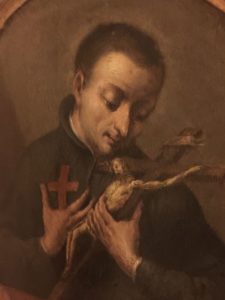


In addressing the subject that was proposed to me, I chose a literary genre that makes the participation of the listeners more active and as a consequence makes their listening to this paper less burdensome. When entrusting myself to my imagination, it was spontaneous for me to think of a meeting of a group of religious and lay people connected with the Order of Camillians, but without attributing to them special personal characteristics. Through their contributions, I have sought to give expression to the many voices that circulate as regards the subject that was entrusted to me.
THE CHAPLAINCY OF ST. JOHN’S HOSPITAL – THE CAMILLIANS OF ROME
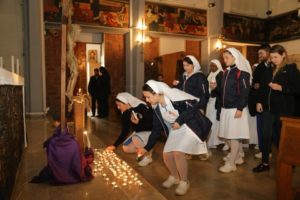


PHOTOGRAPHIC GALLERY
THE PROVINCE OF INDIA
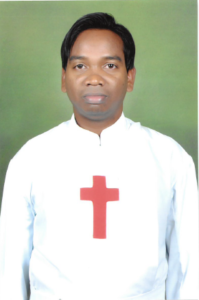


THE PROVINCE OF BRAZIL
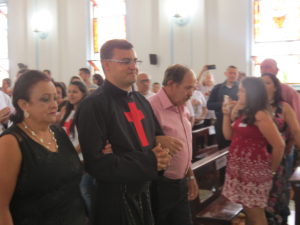


THE PROVINCE OF SICILY AND NAPLES – a new parish mission
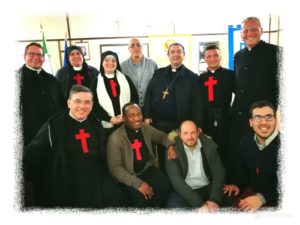


THE CAMILLIANUM – Rome
THE DEFENCE OF HEALTH.
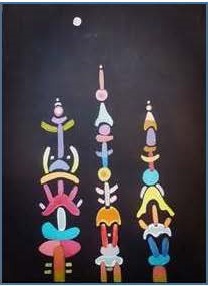


Seminar: THE SOCIAL QUESTION IS A MORAL QUESTION
‘The social question is a moral question’. This is how the encyclical Populorum progressio of the Blessed Paul VI begins. This document remains of contemporary relevance in its analysis: ‘Human society is sorely ill. The cause is not so much the depletion of natural resources, nor their monopolistic control by a privileged few; it is rather the weakening of brotherly ties between individuals and nations’ (n. 66).
This interdisciplinary seminar will pay attention to two questions: inequality is not a calamity that is beyond our responsibilities but the result of our political and economic decisions. These we have to redirect starting with the defence of the common good. The management of health care, which is a common and relational good, can help us to hold up new pathways of solidarity and sharing.
READ HERE THE ARTICLE OF AGENSIR
Course of advanced formation THE PASTORAL CARE OF TREATMENT AND HEALTH. Edition 2018.
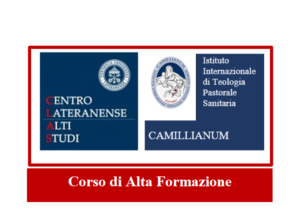


Health involves all the crucial factors of existence: not only the biological ones but also the anthropological, the spiritual, the psychological, the socio-cultural and the economic.
An experience of vulnerability raises questions concerning help that finds an answer in the socio/health-care field but it also opens up questions of meaning that call on theology and philosophy.
This course on the pastoral care of treatment and health is committed to providing conceptual instruments suited to promoting pastoral care in health in the contemporary pluralist cultural context which is in need of trust and hope (from the presentation).
Overall duration of the course: 3 months: 20 hours over 9 weekends from April to June 2018.
Date for enrolments: 3 April 2018
THE DAUGHTERS OF ST. CAMILLUS
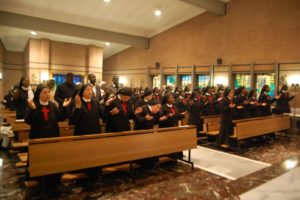


THE CAMILLIAN PROVINCE OF THE PHILIPPINES
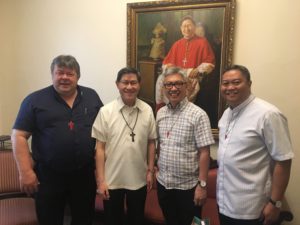


The visit had some ‘special’ moments: the courtesy meeting with the Archbishop of Manila Cardinal Luis Antonio Tagle; the priestly ordination of Fr. Anthony Ongcal; and the beginning of the novitiate in Baguio for three young candidates: Ruel Fernandez, Paul Austin Echavez and Benjie Ibanez.
ROME – THE ‘BEATO E. REBUSCHINI’ COMMUNITY
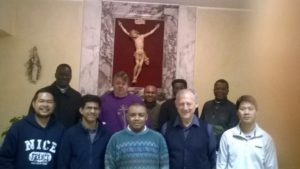


‘The processes of internationalisation should commit all institutes…to become laboratories of supportive hospitality where different sensibilities and cultures can acquire strength and meanings that are not known elsewhere and are therefore highly prophetic. This supportive hospitality is constructed with a true dialogue between cultures so that everyone can convert to the Gospel without abandoning their own special characteristics. The objective of consecrated life will not be to maintain itself as a permanent state in the different cultures that it encounters but to keep evangelical conversion permanent in the heart of the progressive construction of an intercultural human reality’ (CICLSAL, New Wine in New Wineskins. The Consecrated Life and the Ongoing Challenges since Vatican II, n. 40§1).
PASTORAL LETTER OF THE SUPERIOR GENERAL TO THE ‘CASA ENRICO REBUSCHINI’ CAMILLIAN COMMUNITY OF ROME
MEETINGS OF THE ORDER OF CAMILLIAN – THE SIX-YEAR PERIOD 2014–2020
THE CAMILLIAN PROVINCE OF BURKINA FASO
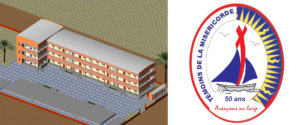


To achieve this goal, the Province in the year 2016 founded a private school for nurses and obstetricians, which was recognised as being on a level with state institutions of the same kind, with the authorisation of the Ministry of Health of Burkina Faso: the Ecole Privée de Santé Saint Camille ‘EPSCA’.
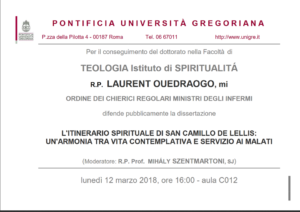


THE CAMILLIAN VICE-PROVINCE OF BENIN-TOGO
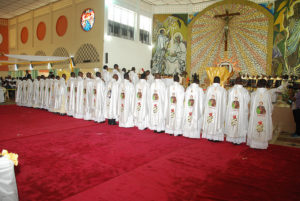


The seed becomes a tree thanks to the spirit of God.
Dearest Religious,
Together with the prophet Daniel we say: ‘We thank you, Lord, with all our heart’ (Ps 138,1a). A giving of thanks because the mustard seed has become a large tree and the birds of the sky take shelter in its shade (Mk 4:30-32). When the wish to go to Africa was born in the minds in the promoters of the missionary ideal – Father Fulvio Barca, Father Antonio Busiello and Father Vincenzo Di Blasi – it was a simple adventure of the spirit. It appeared that this was a dream that could not come true and yet through Monsignor Adimou the Spirit of God brought forth the request to ask the sons of St. Camillus to exercise their ministry to the benefit of the poorest and most abandoned populations of the country: the people on Lake Nokouè called the Toffinous.
THE LAY CAMILLIAN FAMILY
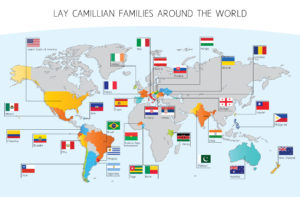


THE WOMEN MINISTERS OF THE SICK OF SAINT CAMILLUS – LUCCA
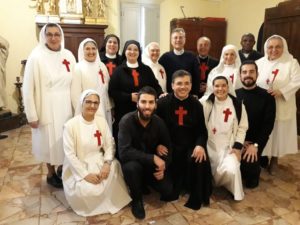


THE CHURCH OF ST. MARY MAGDALENE – the restoration of the sacristy in the church
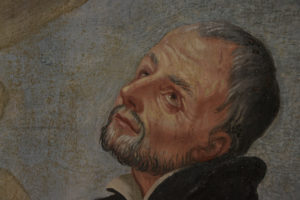


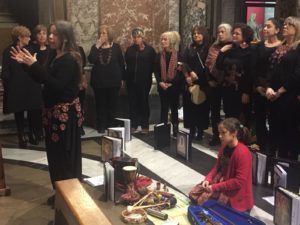


A VIRTUAL TOUR OF THE CHURCH OF ST. MARY MAGDALENE
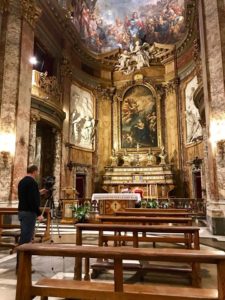


Here are some photographs of the backstage. As soon as they are ready, we will share the videos containing the shots!
RELIGIOSI DEFUNTI
See, now they vanish, the faces and places, with the self which, as it could, loved them. To become renewed, transfigured, in another pattern’ (T.S. Eliot).
The Camillian Confreres of French Province, announce the death of p. Arsène MICHELS (82 years old). Remember fr. Arsène in our prayers to the Lord! The obituary
Best wishes to everyone for a holy Easter of the Resurrection 2018!


